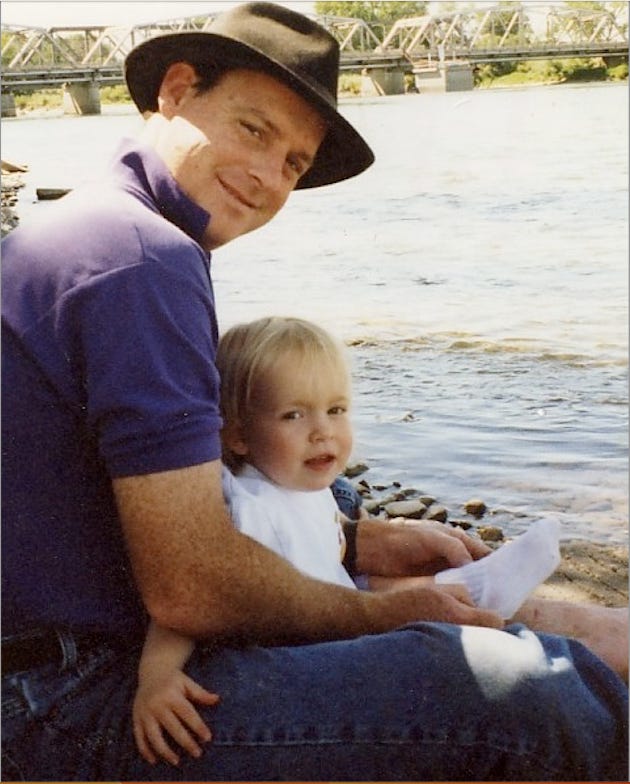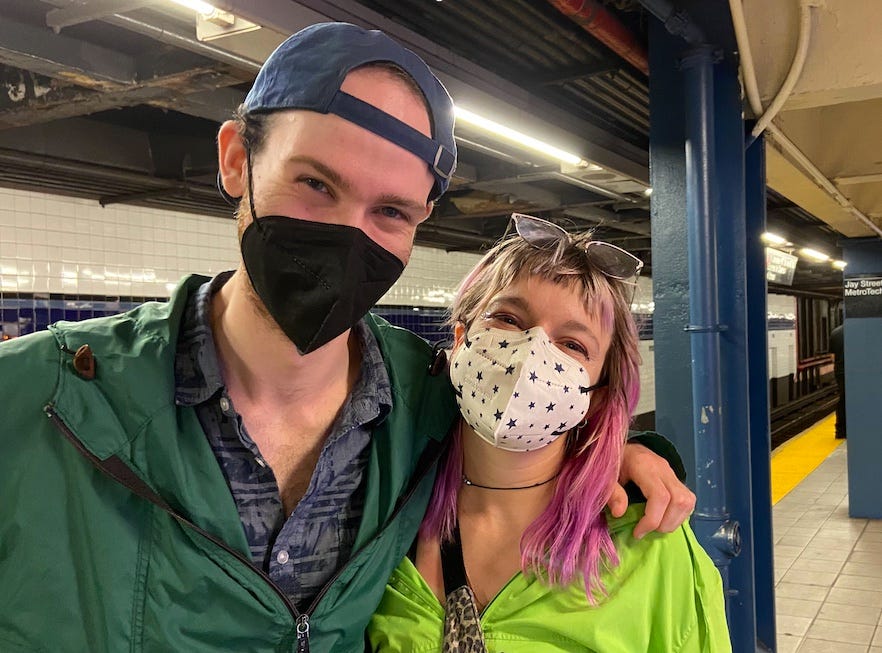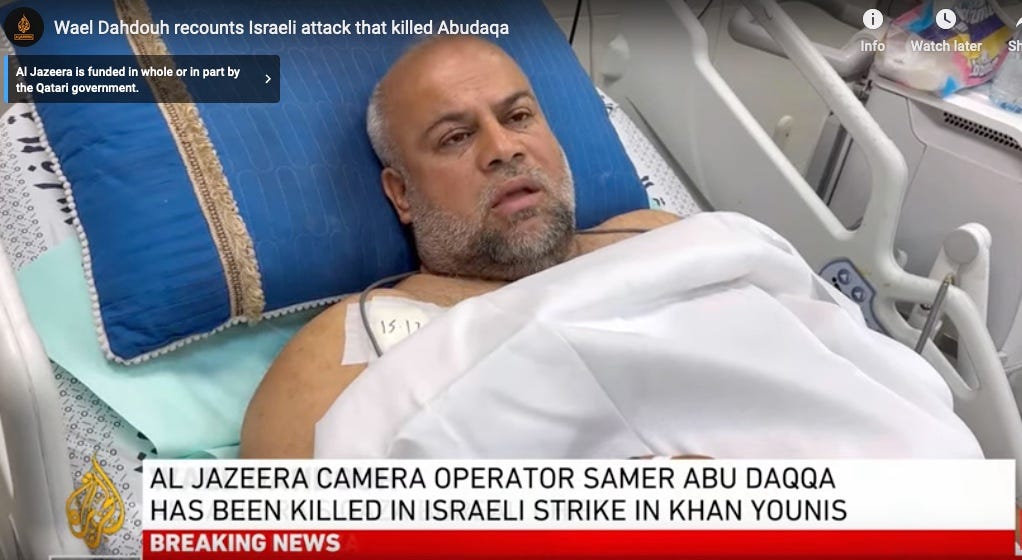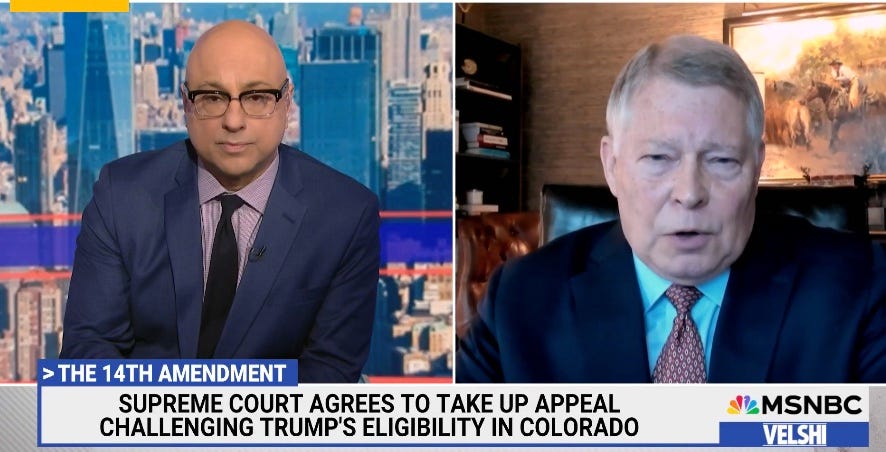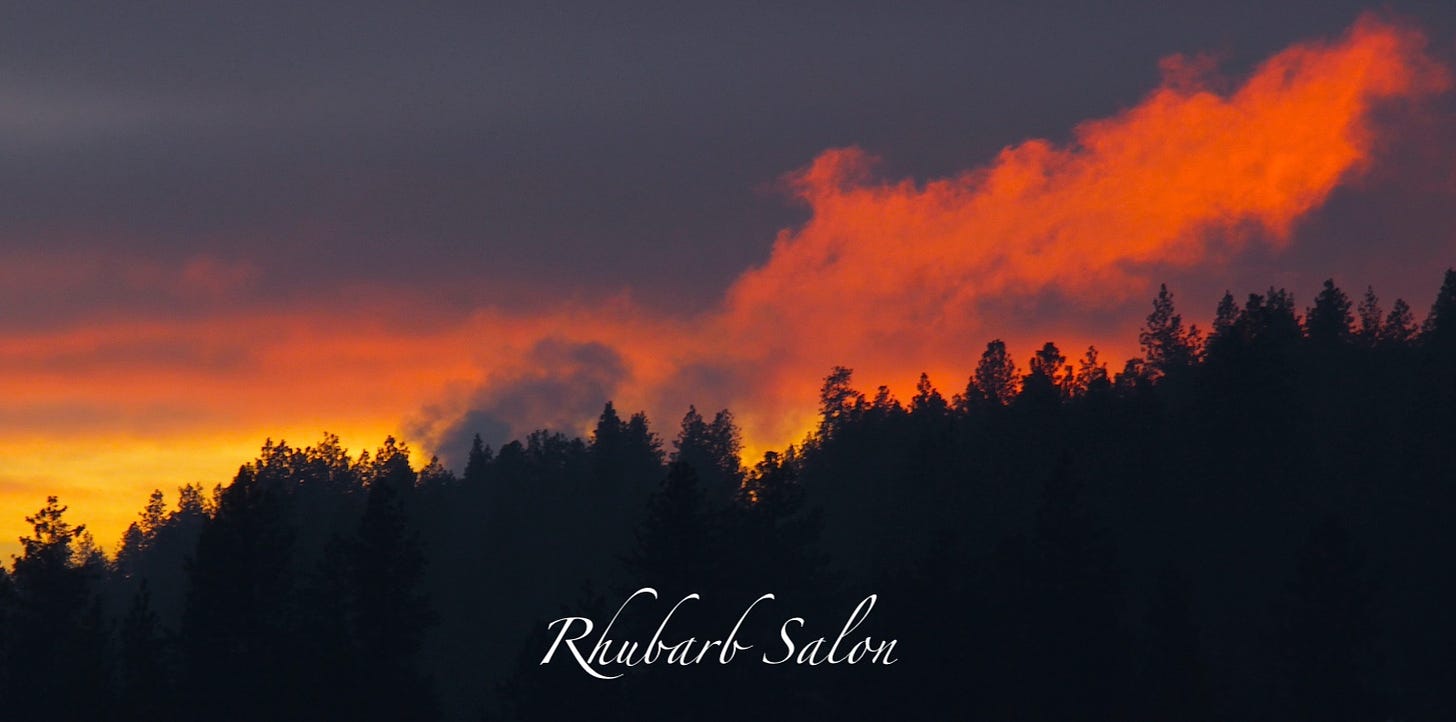Audrey and me along the bank of the Yellowstone River, summer 1995
Progeny
Eleven sentences into the first part of her new series—Close Encounters with the Mirror World—my daughter drops a hint as to how this came about.
“I woke up to a text from my dad, on the last day of 2023, at 7:15 pm (I work the night shift), with a picture of a positive Covid test. ‘Uh oh,’ it read.
True enough. I really did wait until the waning hours of last year before becoming ill with Covid. It was a day or two later that Audrey and I were talking on the phone and the pitch in her voice changed slightly. She said she had a piece she wanted to write. A piece for this space, The Daily Rhubarb.
Honestly—and not surprisingly given the affliction—my head was fogged at the time. It took me an extra few seconds to process what she was proposing. I’m sure my face looked as if someone had just knocked on my door and asked to borrow the car. To which I likely would ask, “where are you going?” before handing over the keys. She couldn’t see my face. But the pause would have been hard to miss.
With Devin on a Brooklyn subway platform last summer
I don’t mean to suggest it was a hard decision. As her employers at the Spokesman-Review learned nearly a decade ago she’s a talented writer. Plus, it did solve a problem for me. I had no idea how long I’d be bed-ridden, and how Covid would affect the space between my ears that gives rise to all these words. In short, it took less than a minute for me to go from intrigued to enthused.
Close Encounters started out as one essay, but within 48 hours Audrey told me it was already over 4,000 words. That’s a lot. But her voice was enthused. She wasn’t stuck. She was cruising through the terrain of the piece—the alleys of the conspiracy world, with its pit bulls, car alarms, inflated egos and keyboard burglaries. She was excited by how the writing process was surfacing insights into material she’d been absorbing and processing for some time. I could share more about her experience and strong opinions but if you read the series you will read it in her voice, and rightly so.
Both my children read voraciously, and they are students of our history and times. Of late, Devin and I have been having long conversations about the legacy of Henry Kissinger, which is not to say he and I are fans of Kissinger. We’re not. I grew up in Latin America at a time when the U.S. was actively supporting the Contras and other right-wing militias and death squads, including the assassin(s) who murdered Archbishop Romero in 1980. Most Americans don’t remember, or choose to remember, Kissinger’s role in the 1973 military coup that overthrew the democratically elected government of Salvador Allende, replacing it with the murderous regime of General Augusto Pinochet.
I mention that for two reasons. One is I was raised by a patriot to be a patriot, and I am. Secondly, my loyalty is to America’s better angels and ideals, not to the authors of the CIA torture manual. That rubs off onto both my children, and it emerges as part of Audrey’s critique, especially in Part III of her series as she follows Naomi Klein’s reporting, most recently from Klein’s acclaimed book Doppelgänger (2023). I figure I should prepare you for that. American appetites for power and resources inevitably affect our politics and the ways and means by which wealth gets amassed and distributed. There’s no chance Audrey would overlook that. Along the way, we meet Robert F. Kennedy Jr., Gwyneth Paltrow and other characters in a strange world that is replete with hazards and life lessons. We’ll start here with Part I tomorrow (Thursday).
Wael al-dahdouh in stretcher after being injured in drone attack that killed his cameraman in December.
There are too many tragic stories from Israel and Gaza for me to keep up with but I wanted to convey my awareness, deep respect and sorrow for Palestinian journalist Wael al-dahdouh (Al-Jazeera) whom most of us first learned about on the day last October when his wife, two of his children and a grandchild were killed by an Israeli airstrike upon a dwelling in which they were sheltered in Gaza. In December, Dahdouh himself was nearly killed (his cameraman didn’t survive) when his vehicle was attacked by an Israeli drone.
The body count among journalists reporting on the Gaza siege is extraordinary, with 79 fatalities thus far, according to the Committee to Protect Journalists. This in just three months. By comparison, 63 journalists were killed over the 25 year duration of the Vietnam War. Tragically, Dahdouh’s journalist son Hamza and a fellow journalist were killed this past weekend, again as a result of an Israeli drone strike on a vehicle filled with reporters. I hardly know what to write, about his and the others’ commitment to telling the story, about their bravery, about the grief they must carry with them.
Finally, I wanted to add a short video to the story about the 14th Amendment and the initiatives in Colorado and Maine to bar former President Donald Trump from the ballot this year. It is a recent interview by MSNBC’s Ali Velshi with one of America’s most respected conservative legal analysts, former Appeals Court Judge J. Michael Luttig. Luttig’s conclusion is that the 14 Amendment is very clear that Trump should not be on the ballot this year. But it’s riveting to see and hear it in his voice. The U.S. Supreme Court has scheduled oral arguments in the case for February 8th.
—tjc





